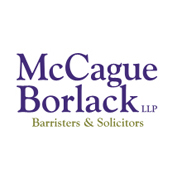In the recently released Endale v. Parker,1 the Superior Court of Justice has clarified which party ought to pay for obtaining documents, whether by undertaking or otherwise. This case will hopefully serve to settle this all too frequently contested issue in personal injury litigation.
In Endale, the Court granted the defendant's request for an order for the plaintiff to answer undertakings consisting of various medical records, pay the costs associated with answering undertakings and to produce a further and better affidavit of documents. The defendant previously agreed to pay the reasonable costs associated with reproduction but argued the plaintiff ought to pay the remainder of the expenses associated with production.
Of the Rules of Civil Procedure,2 Rule 30.023 provides that every document relevant to the issues of the litigation that is in the party's power, control, or possession, must be produced. Rule 30.014 provides that a document is in a party's power when requesting party is not entitled to obtain the original, and the other party is entitled to retrieve it.
The Court found that the documents requested by the defendant were clearly relevant, and that the plaintiff had power over them. The plaintiff's submission that the documents were not in their power on the basis that the physician(s) could conceivably deny the request based on the best interests of the plaintiff was not accepted, as there was no evidence advanced that any requests had been denied.5 The Court held that "...each party must fund its own case. The obligation to produce documents as required by Rule 30.01(1) cannot be the responsibility of an adverse party who may have better financial means to source the documents."6 The plaintiff's argument that there ought to be a distinction between pre- and post-discovery production was rejected. Instead, the Court held that Rule 30.02 is to be applied unconditionally, no matter the stage of litigation. Barring "exceptional circumstances", which requires some degree of evidentiary foundation, there was no legitimate reason to deviate from the general rule that each party must fund its own case.
...the party in power, possession or control of the document is required to pay for obtaining those documents. |
The takeaway of Endale is, barring exceptional circumstances, the party in power, possession or control of the document is required to pay for obtaining those documents. However, the cost of reproducing that documentation, whether by photocopy or otherwise, may well be borne by the requesting party.
- Endale v. Parker, 2022 ONSC 2008
- Rules of Civil Procedure can be found on the Ontario Government Site
- Go right to Rule 30.02 of the Rules of Civil Procedure
- Go right to Rule 30.01 of the Rules of Civil Procedure
- McInerney v. MacDonald, 1992 CanLII 57 (SCC), [1992] 2 S.C.R. 138 at p. 154: "[…] If the physician reasonably believes it is not in the patient's best interests to inspect his or her medical records, the physician may consider it necessary to deny access to the information."
- Endale at para 17.


